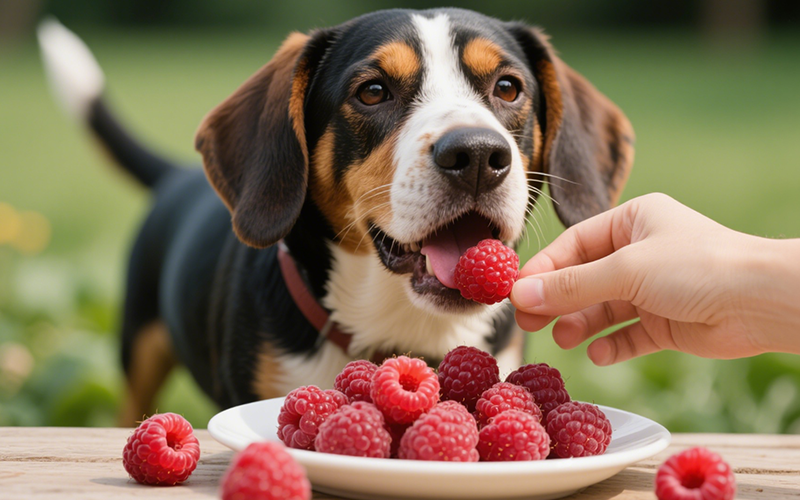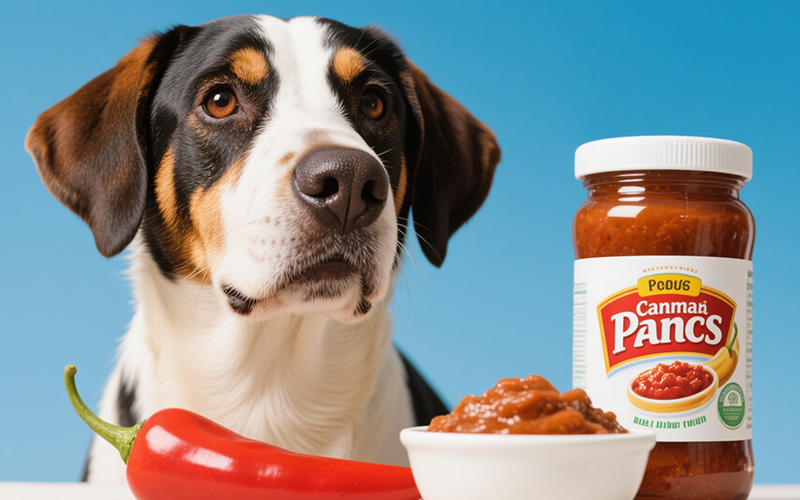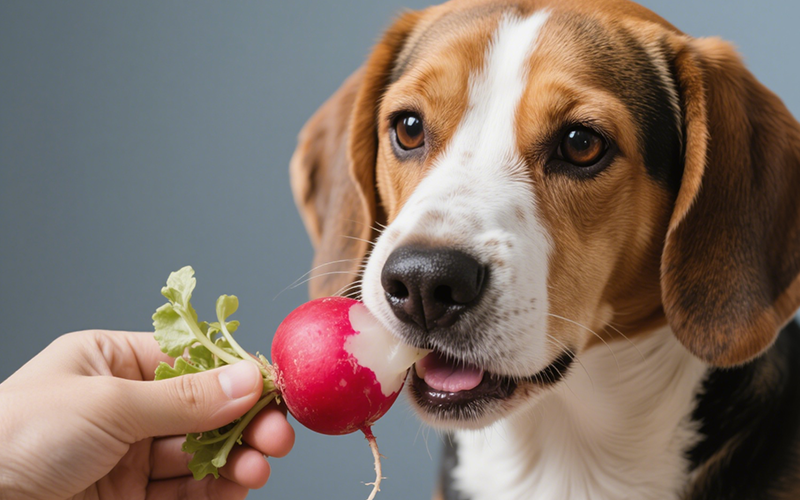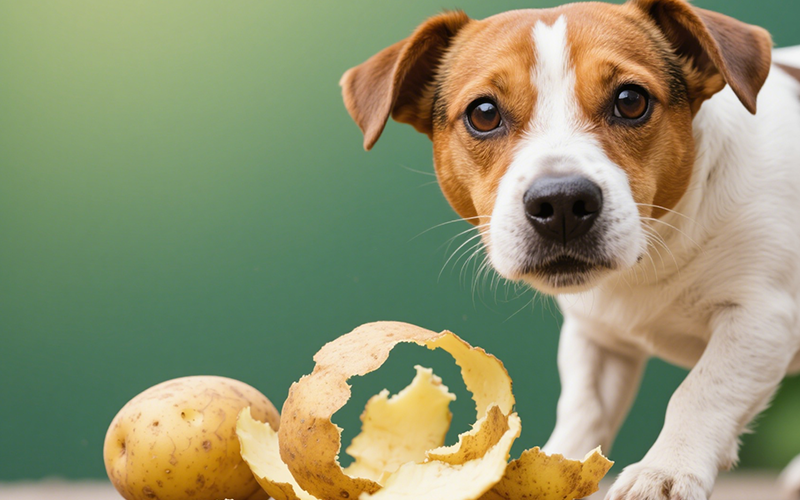Can Dogs Eat Bacon? The Truth Behind This Popular Snack for Dogs
- 24 Feb 2025 15:12
As a dog owner, you’ve probably been tempted to share a piece of your breakfast bacon with your furry friend. But the question is, can dogs eat bacon? While it's a common treat, bacon is not the best food choice for dogs, and it’s important to understand the potential risks before feeding it to your pet.
In this article, we’ll explore the pros and cons of feeding bacon to dogs, the possible health risks, and how to make an informed decision when it comes to offering bacon as a treat.

Why Bacon Is Not Recommended for Dogs
High in Fat and Calories
Bacon is packed with fat and calories, which can contribute to obesity and pancreatitis in dogs. Pancreatitis is an inflammation of the pancreas that can be caused by a high-fat diet. This condition can be severe and even life-threatening. Regular consumption of fatty foods like bacon can also lead to weight gain, which in turn puts strain on your dog’s joints and overall health.High Sodium Content
Bacon is also known for its high sodium content. Too much sodium in your dog’s diet can cause dehydration, high blood pressure, and other health issues, especially for dogs with heart conditions. Excessive salt intake can also result in kidney problems in the long term.Preservatives and Additives
Bacon is often cured with preservatives, such as nitrates and nitrites, which are used to enhance flavor and preserve the meat. While small amounts of these preservatives may not immediately harm your dog, over time, they can accumulate in your dog’s system and cause health problems. Some studies have also linked high levels of preservatives to an increased risk of cancer in both dogs and humans.Digestive Upset
Feeding your dog too much bacon, especially if it's not part of their regular diet, can cause gastrointestinal upset. Dogs with sensitive stomachs may experience symptoms such as vomiting, diarrhea, or gas after consuming bacon. The greasy nature of bacon can also irritate your dog’s digestive system, leading to discomfort.Choking Hazard
In addition to the health risks, bacon can also present a choking hazard if fed in large pieces. Small dogs, in particular, are more at risk of choking, so it’s important to serve bacon in small, bite-sized portions if you choose to offer it.
Symptoms of Overconsumption or Bacon Toxicity
If your dog consumes too much bacon or isn’t used to high-fat foods, they may show symptoms of fatty food toxicity or digestive distress. Watch for the following signs:
Vomiting
Diarrhea
Lethargy
Abdominal pain
Excessive thirst (due to dehydration from the high sodium)
Loss of appetite
If you notice any of these symptoms after your dog eats bacon, contact your veterinarian immediately. In severe cases, pancreatitis or other complications may require emergency medical attention.
Safer Alternatives to Bacon for Dogs
If your dog loves the taste of bacon, there are some safer alternatives you can offer without the added health risks:
Bacon-Flavored Dog Treats
There are many commercially available dog-safe bacon-flavored treats made with ingredients that are specifically formulated for dogs. These treats are designed to give your dog the flavor they crave without the harmful fats and preservatives found in real bacon.Turkey Bacon
Turkey bacon is a leaner alternative to regular bacon and can be safer for dogs in small amounts. It still contains some fat and sodium, so it should be given in moderation. Be sure to check the ingredients to ensure there are no added preservatives or artificial flavorings.Cooked Chicken or Turkey
If you’re looking for a protein-packed treat, consider offering cooked chicken or turkey without any seasoning, skin, or bones. These meats are leaner and healthier options for your dog, providing plenty of flavor without the risks associated with bacon.Carrots or Green Beans
For a healthier, low-calorie treat, try offering your dog carrots or green beans. Both are safe, crunchy vegetables that most dogs love. These veggies are rich in vitamins and fiber, and they can help satisfy your dog’s chewing instincts.
How to Safely Feed Bacon to Dogs (If You Choose to Do So)
If you still decide to feed your dog bacon on occasion, it’s essential to do so in moderation and follow these safety guidelines:
Limit the Quantity
Keep the amount of bacon you feed your dog small. Only give one or two small pieces as a rare treat. Bacon should never be a regular part of your dog’s diet.Opt for Lean Bacon
If you’re going to give your dog bacon, choose leaner cuts and trim off any excess fat. This will reduce the overall fat content and minimize the risks of digestive upset and pancreatitis.Avoid Seasoned or Flavored Bacon
Make sure the bacon you give your dog is plain and free from seasonings, such as garlic, onions, or spices, as these can be toxic to dogs.Monitor for Health Issues
After offering bacon to your dog, monitor them for any signs of upset stomach or discomfort. If your dog shows any symptoms like vomiting or diarrhea, stop feeding bacon and consult with your veterinarian.
Should You Use PettureX for Your Dog’s Health?
If you’re unsure about feeding bacon or any other food to your dog, or if you notice any signs of discomfort, PettureX is a great resource for 24/7 online consultations with pet health professionals. PettureX can help guide you in making the best dietary choices for your dog and offer advice on how to manage any health concerns.
Conclusion: Can Dogs Eat Bacon?
In conclusion, while bacon is not recommended for dogs, it can be fed in moderation as an occasional treat. Due to its high fat and sodium content, along with the potential for preservatives and other additives, bacon can pose serious health risks, including pancreatitis, obesity, and gastrointestinal issues. For a healthier alternative, consider offering your dog leaner meats like chicken or turkey, or look for bacon-flavored dog treats that are specifically designed for pets.
If you have any concerns about your dog’s diet or health, PettureX offers helpful advice through 24/7 online consultations with pet health professionals. Always prioritize your dog’s health and well-being when making decisions about their food.
Related

Raspberries for Rover? A Vet's Guide to This Berry Good Treat for Dogs
- 23 Apr 2025
Ranch Dressing Dilemma: Can Dogs Safely Indulge? A Deep Dive into Why It's a Bad Idea
- 23 Apr 2025
Radish Bites for Your Buddy? A Vet-Reviewed Guide on Whether Dogs Can Eat Radishes
- 22 Apr 2025
Potato Peels for Pooches? Unpeeling the Risks and Facts for Dog Owners
- 22 Apr 2025
Crunchy Curiosity: Can Dogs Safely Snack on Pork Rinds? A Deep Dive
- 21 Apr 2025
Pomegranate Seeds and Pooches: A Deep Dive into Whether Dogs Can Safely Indulge
- 21 Apr 2025
Can Dogs Eat Peaches? Vet Explains Benefits, Cyanide Risks & Safe Serving
- 16 Apr 2025
Can Dogs Eat Mulberries? Vet Explains Safety, Benefits & Potential Risks
- 16 Apr 2025
Can Dogs Eat Mozzarella? Vet Explains the Cheesy Truth (Risks & Benefits)
- 16 Apr 2025
Can Dogs Eat Mango Skin? Vet Explains Why It's a Risky Chew!
- 16 Apr 2025
